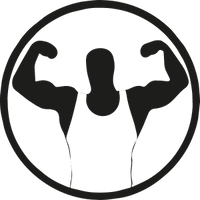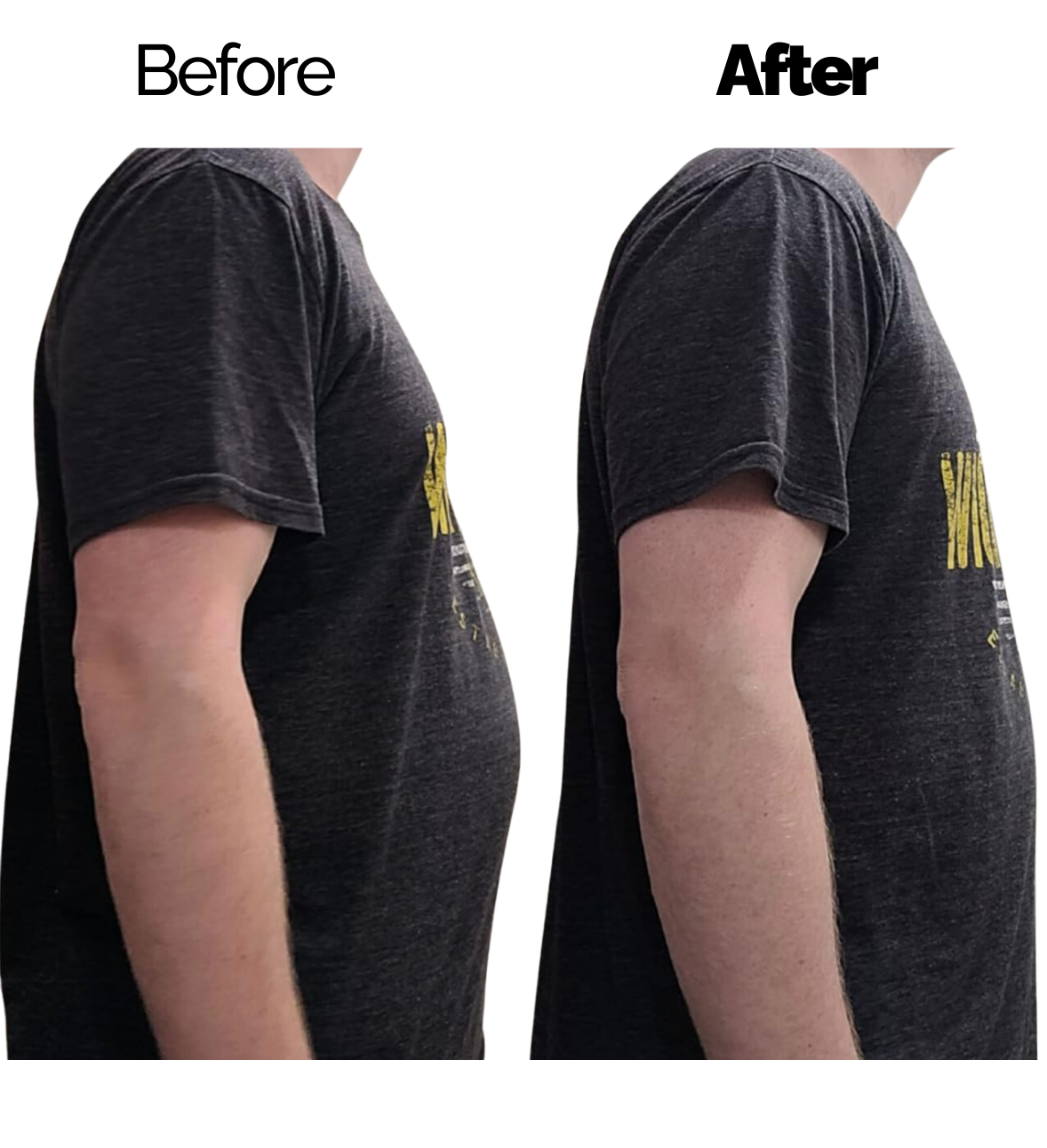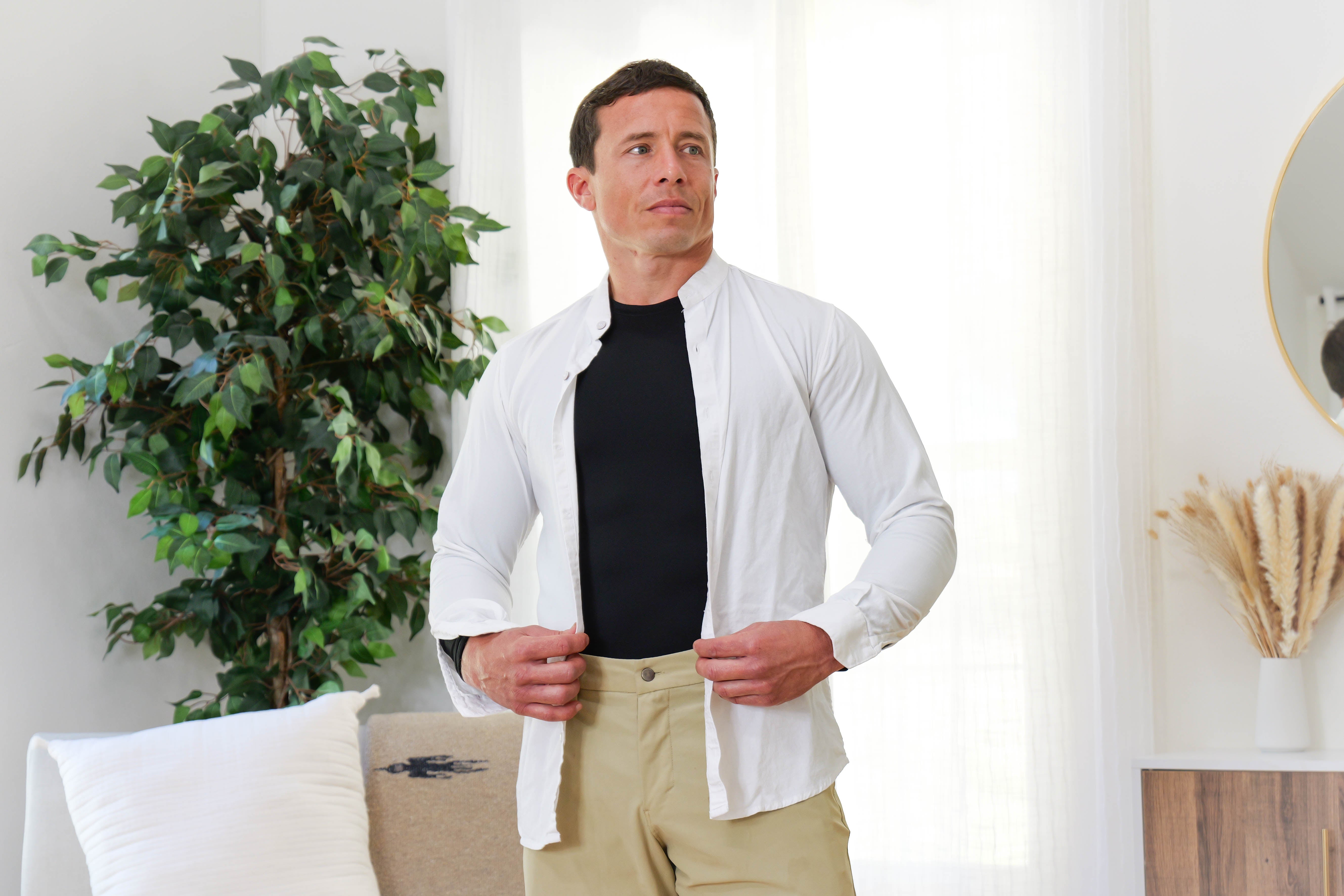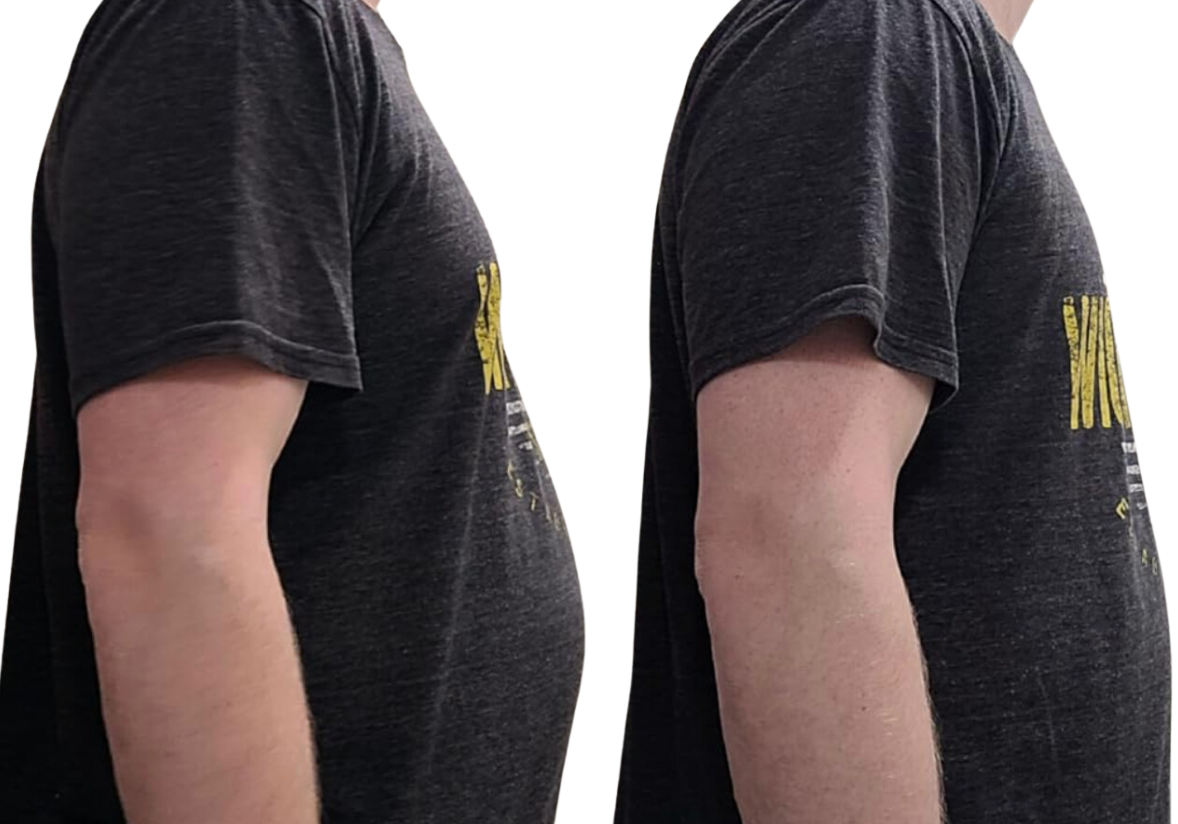You can spot low testosterone in a few ways. Maybe you're always tired, can't focus, or putting on weight even though your diet and exercise haven't changed.
Low testosterone can make you moody and grumpy, and might even cause depression. If you notice these signs, you should check your testosterone levels. Here's a list of the main signs that your testosterone might be low.
What is Low Testosterone?
Low testosterone happens when your testicles don't make enough testosterone, the male sex hormone.
Testosterone helps create and maintain male features, like facial and body hair, a deep voice, and strong bones.
Low testosterone has an impact on the body in several ways leading to symptoms such as:
- Feeling tired
- Weak sex drive
- Trouble getting or keeping an erection
How Often Does Low Testosterone Happen?
Everyone knows testosterone levels go down as we get older. Studies show that almost 40% of guys over 45 have low testosterone. But what do we mean by "low" testosterone? And how often does it happen?
To tackle these questions, we need to get a grip on what testosterone is and why it matters so much. Like we talked about before, testosterone is a hormone that's crucial for men's health.
It has an influence on managing sex drive, bone and muscle mass how fat is spread out, and the production of red blood cells. No wonder low testosterone can cause a bunch of issues such as trouble getting or keeping an erection feeling worn out less muscle, putting on weight, and feeling down in the dumps.
Well, it's not so simple to tell you how often low testosterone happens. You know figuring out what's normal for testosterone levels isn't easy. This is because these levels go up and down during the day and can change based on things like body mass index (BMI), what you eat, how much you drink, some medicines you might take how old you are, and if you're sick.
We can't give you a clear-cut answer about how common low testosterone is, but it's more widespread than you might expect. If you're noticing any of the signs we talked about earlier, it's time to check in with your doctor about getting your testosterone levels tested.
What Causes Low Testosterone?
Many things can lead to low testosterone such as getting older, lifestyle choices, and health issues. Here are some of the main reasons why testosterone levels might drop:
- Age: Testosterone levels drop as men get older. This explains why older men are more prone to low testosterone.
- Lifestyle choices: Some lifestyle habits can lead to low testosterone levels. These include too much drinking, drug use, and poor sleep habits.
- Medical conditions: Many health issues can cause low testosterone levels. These include being overweight having diabetes, and problems with the pituitary gland.
What are the Top Signs and Symptoms of Low Testosterone?
Many signs and symptoms can point to low testosterone levels.
Low Sex Drive
People often view a man's sex drive as an indicator of his health and manliness. When a guy notices his libido drop, it can worry him. In many cases, a low sex drive is the first sign that testosterone levels are dipping.
Testosterone is the hormone that helps maintain muscle mass, bone density, and red blood cell levels. It also has a big impact on sexual function.
As testosterone levels start to go down, guys might feel less energetic, strong, and able to keep going. They might also struggle to keep an erection and produce less semen when they ejaculate.
If you're worried about low testosterone, talk to your doctor about getting tested. A low sex drive doesn't always mean you have low testosterone, but it can serve as a useful early sign.
Almost every man will deal with some form of man boobs during his life. The condition causes embarrassment and frustration. It can result from drinking too much beer, having unfortunate genes, or getting older.
Most of the time, man boobs are just extra fat deposits and you can treat them with diet and exercise. But in some rare cases, man boobs point to something more serious: low testosterone levels.
Testosterone has an influence on muscle growth and bone density. Low testosterone has an impact on many aspects of health leading to fatigue, weight gain, and decreased libido.
While man boobs don't raise red flags, if you notice them alongside other indicators of low testosterone, you need to see a doctor.
Erectile Dysfunction
ED isn't just an issue for older men. In fact, it can point to low testosterone in men across all age groups. Many think it affects older guys, but the truth is that low testosterone can cause problems for men of any age.
Depressed Mood
Low testosterone can make you feel blue. Testosterone plays a role in regulating your mood. When your testosterone dips, you might feel sad, anxious, or irritable.
Fatigue
Low testosterone can leave you tired. Testosterone helps your body make energy. When levels fall, guys find it hard to keep their energy up all day. They might feel beat even after sleeping all night.
Loss of Muscle Mass
Testosterone also builds and keeps muscle. Low testosterone can cause guys to lose muscle in their arms and legs. They might also feel weaker and get tired faster.
Loss of Bone Density
Testosterone plays a key role in bone density. It helps build and maintain it. Men start to lose bone density when their testosterone levels fall. This loss affects their hips and spine. As a result, they face a higher chance of breaking bones.
How Do Doctors Diagnose Low Testosterone?
If you think your testosterone is low, talk to your doctor first. They'll check you over and order a blood test to measure your testosterone. You can learn more about this test here.
Your doctor will also ask you about your medical history and symptoms. They might inquire about your lifestyle choices, like how much alcohol you drink and if you use drugs. Be open with your doctor so they can figure out what's going on.
Low Testosterone Treatment
If your doctor determines you have low testosterone, they'll suggest treatment. Options to treat low testosterone include testosterone replacement therapy and changes to your lifestyle.
- Testosterone replacement therapy: Testosterone replacement therapy helps treat low testosterone most effectively. It includes taking testosterone through injections, gels, patches, or pellets.
- Lifestyle changes: Changing certain lifestyle habits can also boost testosterone levels. These involve exercise, weight loss, and stress reduction.
Final Word
If you notice any of the symptoms we've described, you might have low testosterone. The good news is that treatments exist, including testosterone replacement therapy. Before you consider this option, you should talk to your doctor to find out if it suits you.
If you think your testosterone levels might be low and you want to get rid of your man boobs, check out Esteem Apparel vests. These vests have been shown to help improve gynecomastia and boost confidence.


























